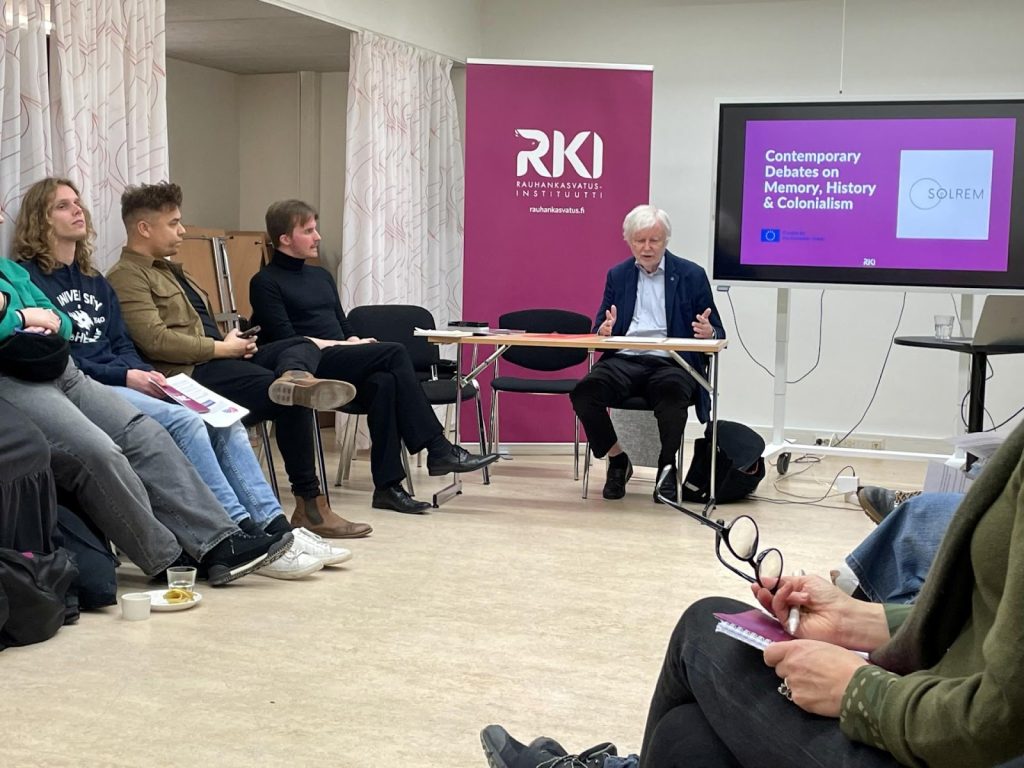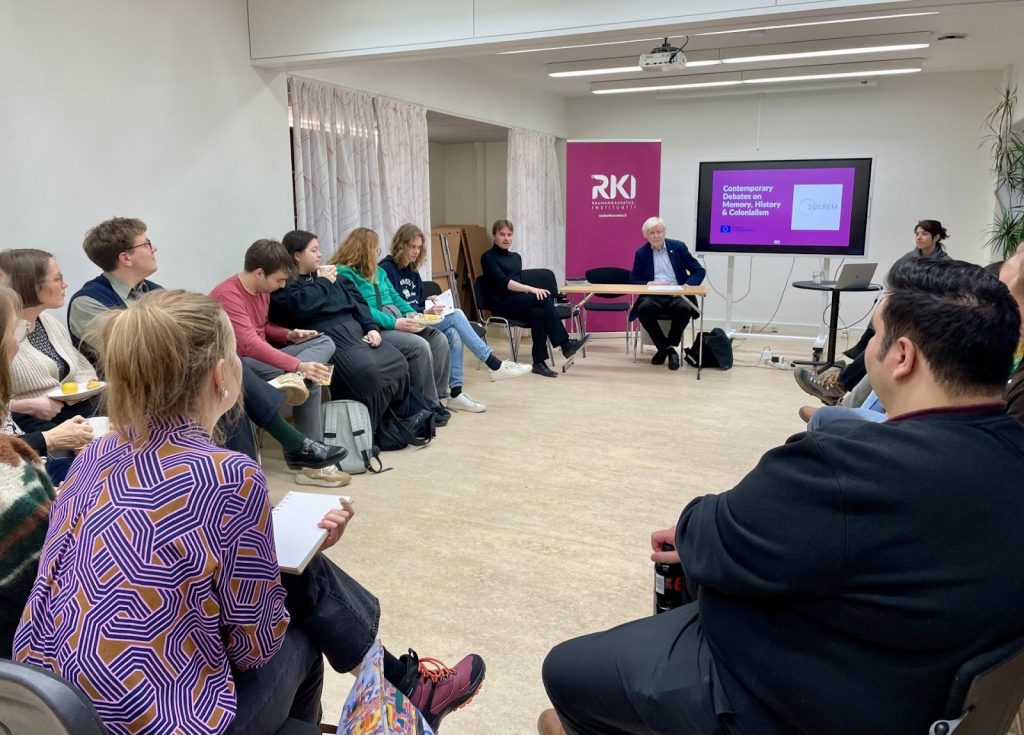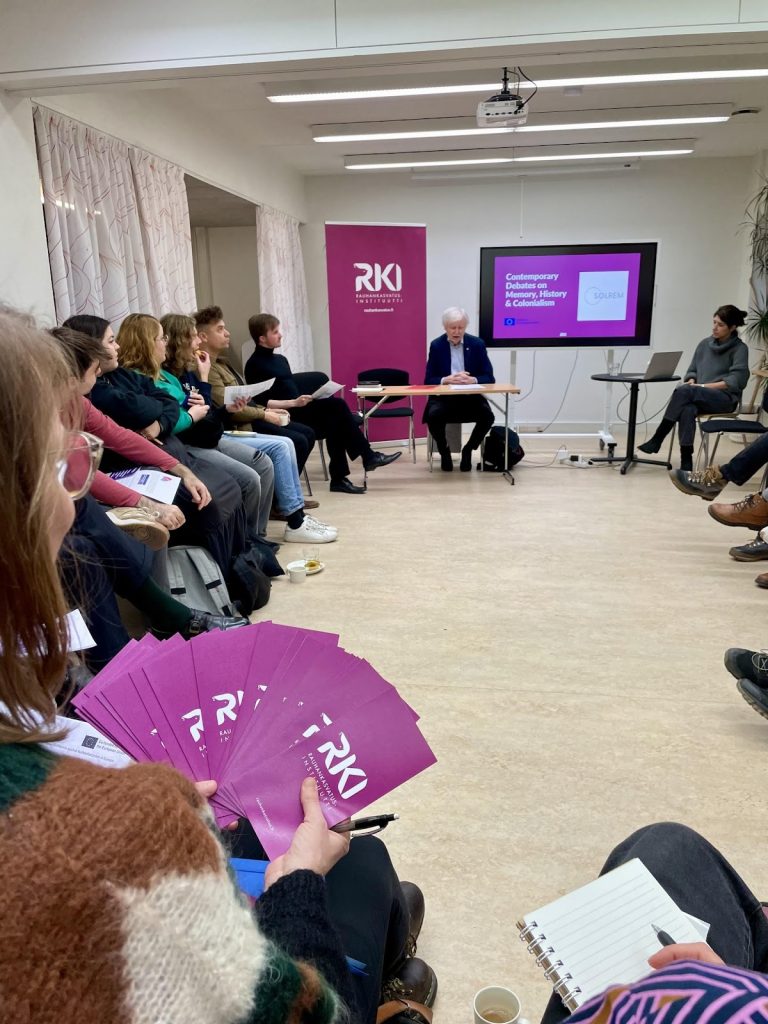20th of November: Approaches, Methods and Challenges of Contemporary Anti-Racism Education
On 20 November 2024, Rauhankasvatusinttituutti ry (RKI) organised a workshop and a public discussion titled “Approaches, Methods and Challenges of Contemporary Anti-Racism Education”, which took place at Globaalikeskus in Helsinki, Finland. Beginning at 3pm and lasting until 5pm, the event amassed an audience of more than 15 people, which included teachers, educators, activists, scholars and students interested in sharing their experiences in anti-racism work, learning from practitioners and joining forces to dismantle cultural and structural racism through education and activism.
Programme
Since the event was attended by several non-governmental organisations working on Roma-related issues, it began at 3pm with a round of introductions from each of the organisations, which had arrived in Finland from Spain, Albania and Romania to discuss the methods and challenges of their work. These organisations included Agenția Împreună from Romania and the Institute of Romani Culture from Albania, amongst several other organisations as introduced by each of their representatives from Spain. Representatives from the Peace Education Institute were also present to discuss their work on related issues, such as the indigenous Sámi living in Northern Finland. After a brief coffee break, the discussion was opened up to the audience. The event concluded at 5pm.
Discussions
As the event brought together civil society representatives from different European countries, the goal of the workshop and the following discussion was to promote transnational dialogue between non-governmental organisations working on similar issues, most notably regarding the Roma minority and their rights, since most of the organisations present were specifically focused on Roma-related issues in their work. Given the varying national contexts between Finland, Spain, Albania and Romania, however, the discussions revealed that whilst several organisations experienced similar challenges in their respective countries, their methods varied considerably. This was because in Spain, for instance, the number of Roma living in the country is significantly higher than in Finland or Albania.
Whilst their methods varied, each organisation highlighted the importance of Roma history as way of promoting their culture and heritage in Europe, where the lives of the Roma people continue to be shaped by historic and systemic factors, such as racism and discrimination. Indeed, because of the long history of systemic racism in each of the participating countries, the Roma language has also become nearly extinct in some places. In others, such as Spain, it is still spoken, but the dialect varies greatly from, for instance, its Finnish counterpart, where the language is spoken by very few individuals and taught only by one at the moment.
Conclusions
In conclusion, the workshop and the following discussion proved to be an important opportunity for European civil society representatives to join forces and discuss the methods and challenges of their work in a transnational setting, which allowed each of the organisations to broaden their perspective on the best practices and principles of anti-racism work in 21st-century Europe, where the protection of minorities and their rights is enshrined in the European Union’s Charter of Fundamental Rights.
The importance of history education was highlighted on multiple occasions, leading to calls for its review and improvement on a national and European level. Each of the organisations present highlighted the need for raising awareness of Roma history, for instance, since the general lack of awareness surrounding the history of such minorities in Finland, Spain, Albania and Romania continues to play a role in perpetuating harmful stereotypes and narratives about them.
The goals of anti-racism education were debated extensively throughout the event, but the issue of stereotypes and how they impact minorities in their everyday life was raised as one of the most prominent factors in driving racism and discrimination in each of the participating countries. The participants discussed how such harmful stereotypes should be combated in anti-racism work, including how a more positive portrayal of minorities can lead to more desirable outcomes.
Photos

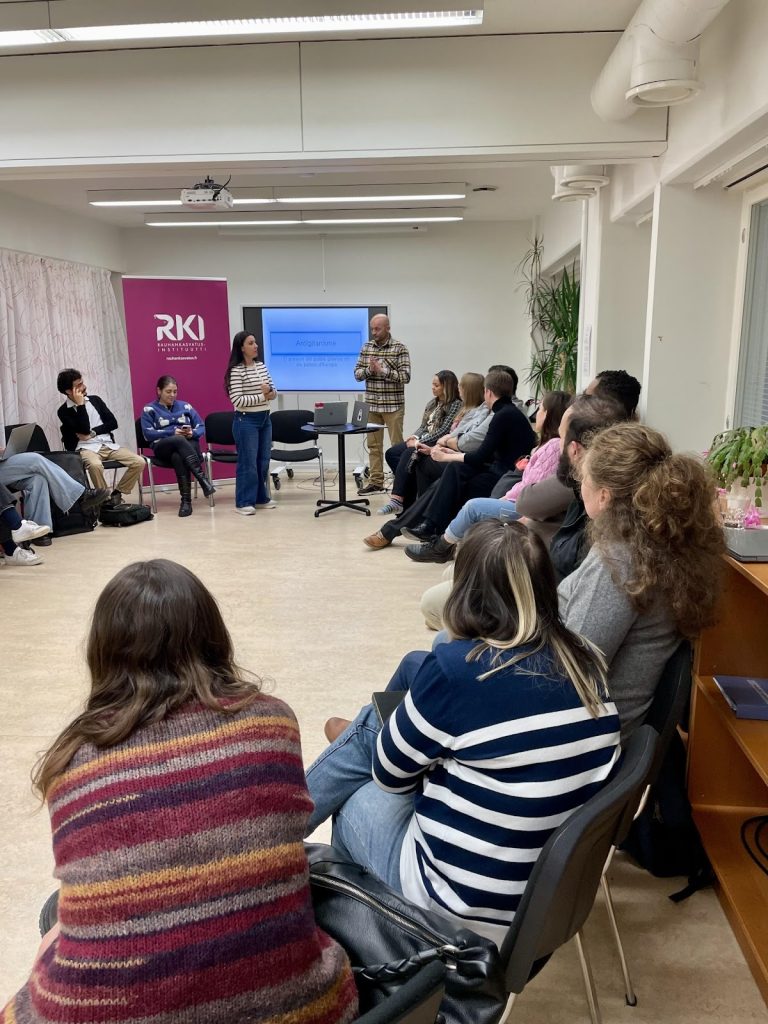
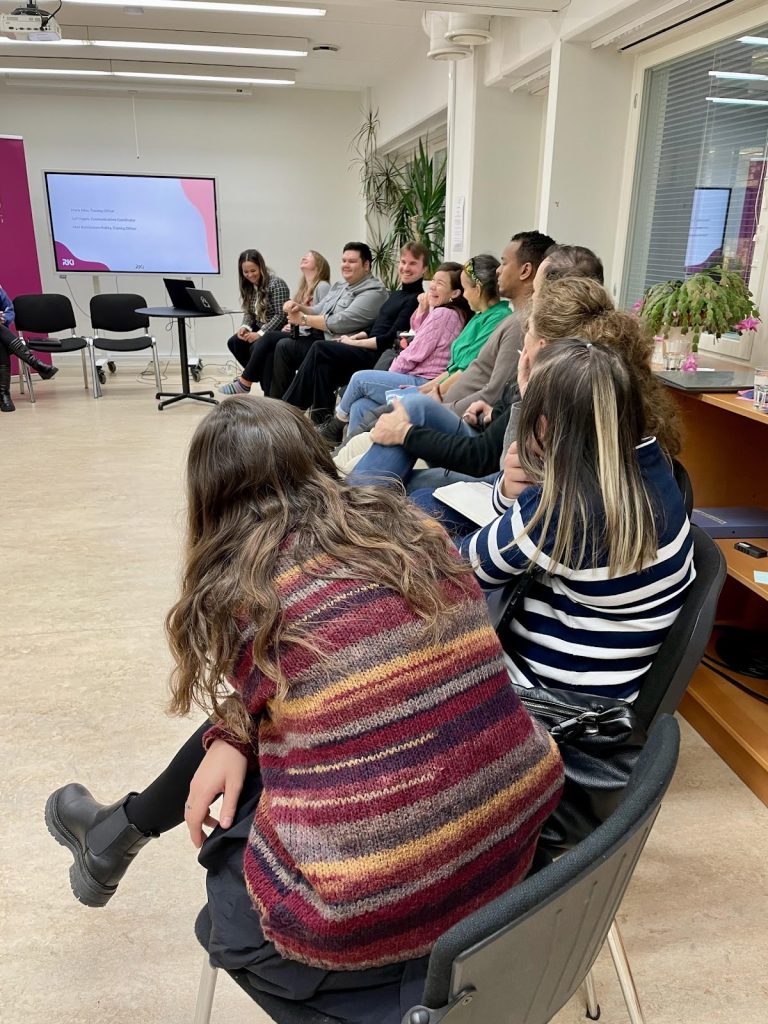
21st of November: Contemporary Debates on History, Memory and Colonialism
On 21 November 2024, Rauhankasvatusinttituutti ry (RKI) organised an international seminar and a public discussion on “Contemporary Debates on History, Memory and Colonialism”, which took place at Globaalikeskus in Helsinki, Finland. It began at 3pm and lasted until 5pm, amassing an audience of more than 20 people, including teachers, educators, scholars and students interested in how history, memory and colonialism shape the present in both Finland and Romania. The event had three speakers in total, each bringing their own contribution to the seminar’s themes: Dr Erkki Tuomioja from HWB (Historians without Borders in Finland), Dr Dana Dolghin from PATRIR (Peace Action, Training and Research Institute of Romania) and Robert Trygg from the Peace Education Institute, who acted as the facilitator of the event.
Programme
The event began at 3pm with Dr Erkki Tuomioja’s introduction and his speech on contemporary Finnish history, followed by Dr Dana Dolghin’s introduction and her research on colonialism and how Romania’s colonial past continues to influence its present. The audience was allowed to ask questions during each presentation, however, it was only after Robert Trygg’s presentation on the significance of historical memory in far-right memory politics that the discussion was fully opened up to the audience. The discussion was facilitated by the third speaker. During the event, there was a brief coffee break, but due to the amount of discussion generated by the seminar’s topics, the discussion continued uninterrupted until the event concluded at 5pm.
Discussions
The discussions between the audience and speakers covered a number of topics related to the seminar’s themes, including how history has been used to promote nationalist ambitions in both Finland and Romania. Dr Tuomioja’s speech also discussed his organisation’s recent project “History in Exile”, which describes an effort to promote dialogue between historians and history teachers in the Nordic and Baltic countries, as well as the public on Russian memory and history politics and its implications for historical research in Russian society. On the other hand, Dr Dolghin raised the important question of what civil societies can do – methodologically speaking – to tackle issues related to history, memory and colonialism in Finland, Romania and Europe at large.
Conclusions
The seminar served as a mental exercise in exploring how issues of history, memory and colonialism are debated and what the implications of such debates are for the broader society, raising important questions about Finland and Romania’s past that are still waiting to be answered in the 21st century. As the audience included several academics, their contribution to the discussions that followed the three speakers should be acknowledged as significant: the event garnered a great deal of public interest, which was demonstrated through the participants’ active engagement with each other. Since the event was only supposed to last for two hours, the discussion had to be stopped at 5pm, but it could have continued for hours more given the active participation of everyone involved.
The discussions revealed that despite varying national contexts, memory politics have a great deal in common in Finland and Romania: history and memory are used to construct narratives of identity and belonging, sometimes at the expense of critical historical analysis. This is particularly true when it comes to far-right memory politics, as discussed during Robert Trygg’s presentation, which demonstrated how memory is contested and how such disagreements are crystallised in certain sites of memory, such as statues and monuments: amongst certain political groups, they are associated with narratives of heroism and martyrdom, which more often than not serve nationalist ambitions rather than the ideals of critical historical analysis.
Both in the case of Finland and Romania, colonialism remains an aspect of the past that ought to be explored with a more critical approach, albeit for different reasons. Whilst each country has experienced a significantly different 20th century, their challenges in addressing their past colonial ambitions are strikingly similar, which shows that future studies may benefit from a transnational approach, such as the one employed at this event. Romania’s issue of slavery has had a lasting impact that deserves more critical attention; likewise, Finland’s historical relationship with the indigenous Sámi living in Northern Finland is still a history in need of writing. A great many other issues were also discussed at the seminar, from each country’s history education to the threat of right-wing extremism.
Photos
